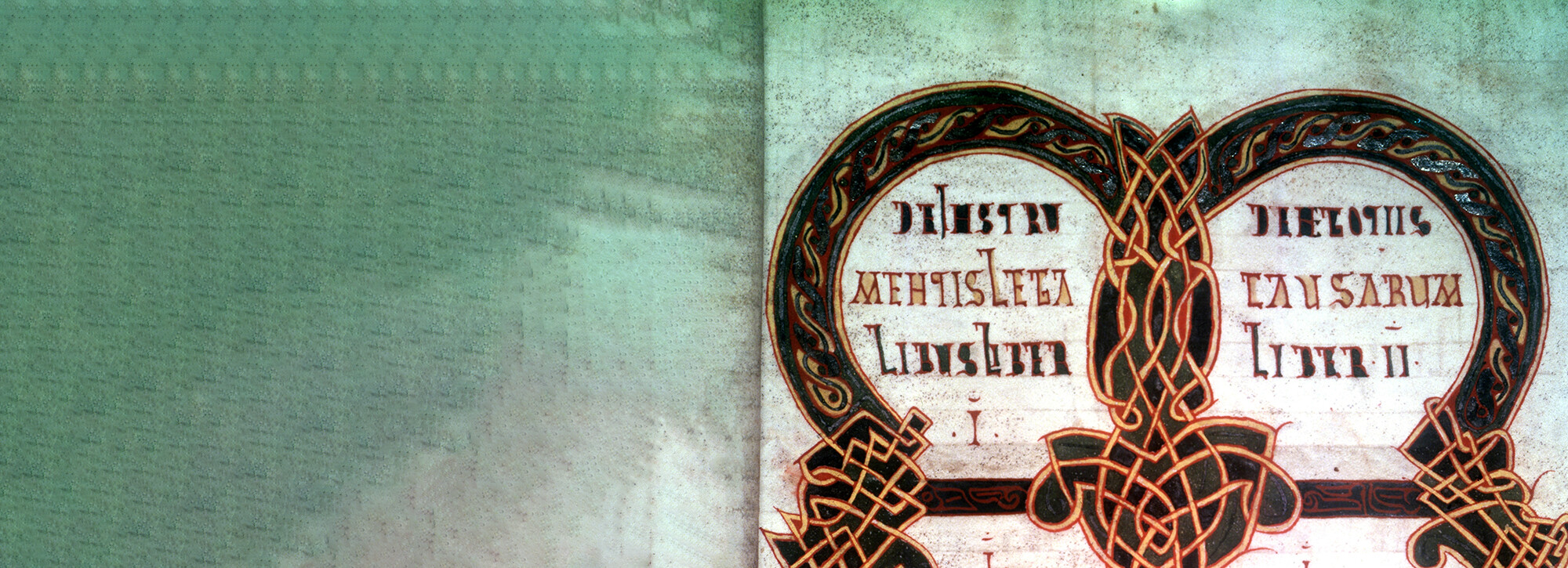Yale Law School
November 12-14, 2021
Co-organizers
James Whitman, Ford Foundation Professor of Comparative and Foreign Law at Yale Law School
Noel Lenski, Professor of Classics and History, Yale Classics Department
Damián Fernández, Associate Professor of History, Northern Illinois University
Sponsors
Funding provided by the Oscar M. Ruebhausen Fund
Contact
Patricia Page, Yale Law School
Agenda
All times EST
Friday, November 12
9:00-9:30
Opening
Introduction to Yale and the Conference - James Whitman - 10 mins
The Liber Iudiciorum Translation Project - Damián Fernández - 20 mins
9:30-10:30
Panel 1: Roman Law and the Liber Iudiciorum
Moderator: Nicolle Gianella, Cornell University
Paul DuPlessis, University of Edinburgh: The relationship between Roman law and Visigothic law
Simon Corcoran, University of Newcastle: The Liber Iudiciorum and the Codex Justinianus
10:30-11:00
Zoom Break
11:00-12:00
Panel 2: From the Breviary to the Liber Iudiciorum
Moderator: Hussein Fancy, Yale University
Arnaud Besson, Université de Neuchâtel: Inheritance Law, between the Lex Romana Visigothorum and the Liber Iudiciorum
Lucia DiCintio, Università degli Studi di Salerno: The Interpretations of Lex Romana Visigothorum and the Liber Iudiciorum
12:00-12:30
Zoom Break
12:30 -1:30
Panel 3: Gender, Family, and Sexuality in the Visigothic Tradition
Moderator: Valerie Garver, Northern Illinois University
Alice Rio, King’s College London: Marriage and family in the Visigothic Formularies
Pablo Díaz, Universidad de Salamanca: Ascetics, virgins and widows in the Liber Iudiciorum
Saturday, November 13
9:00-10:00
Panel 4: Judicial Procedures, Judicial Actions
Moderator: Damián Fernández, Northern Illinois University
Céline Martin, Université Bordeaux-Montaigne: Judges in the post-Chindaswinthian Visigothic Judicial System
Stefan Esders, Freie Universität Berlin: Prescriptive Limitations on Judicial Action
10:00-10:30
Zoom Break
10:30-11:30
Panel 5: The Life and Afterlife of the Liber Iudiciorum
Moderator: Michael J. Kelly, Binghamton University
Isabel Velázquez Soriano, Universidad Complutense de Madrid: Legal sources in donations and slates and their reflection of law
in Visigothic life
Graham Barrett, University of Lincoln: The transmission of the Liber Iudiciorum in the early Middle Ages
11:30-12:00
Zoom Break
12:30-1:30
Panel 6: Asylum and Refugees in the Visigothic and Medieval Tradition
Moderator: Erika Valdivieso, Yale University
Margarita Vallejo Girvés, Universidad de Alcalá: Los fugitivos y el asilo eclesiástico en el mundo visigodo: ¿humanitas del princeps o reverentia loci?
Marta Madero, Universidad Nacional de General Sarmiento and Laboratoire interdisciplinaire d’études sur les réflexivités, L’École des Études en Sciences Sociales, Paris: Del Liber iudicum al ius commune en la legislación hispana (siglos XIII-XVI)
Sunday, November 14
9:00-10:00
Panel 7: The Liber Iudiciorum, Convivencia and Religious Persecution
Moderator: Molly Lester, U.S. Naval Academy
Rodrigo García-Velasco, Woolf Institute, Cambridge: The Liber Iudiciorum and the Iberian Tradition of Antijudaism
Maya Soifer Irish, Rice University: Liber Iudiciorum and the legal status of Jews in 12-13th c. Castile
10:00-10:30
Zoom Break
10:30-11:30
Panel 8: The Long History of the Liber Iudiciorum
Moderator: Paul Freedman, Yale University
Ana Echevarria, Universidad Nacional de Educación a Distancia: The integration of the Liber Iudiciorum into the Arabic Canon Collections
Adam Kosto, Columbia University and Adam C. Matthews, Columbia University: The Liber Iudiciorum and Iberian Legal History in the Medieval Documentary Record
11:30-12:00
Zoom Break
12:00-1:00
Panel 9: Modernity Encounters the Liber Iudiciorum
Moderator: James Whitman, Yale University
Noel Lenski, Yale University, ‘Germanism’, ‘Romanism,’ and the Uses of Visigothic Law in Modern European Cultural Politics
Michael Kulikowski, The Pennsylvania State University, Concluding Observations
